You know how every other day there’s a new buzzword in tech? One day it’s AI, next it’s quantum something, and suddenly everyone’s building apps in “the cloud.” It’s easy to feel like you’re being left behind. But don’t sweat it. I’ve been writing about tech for years and trust me you don’t need a computer science degree to understand how this stuff works or why it matters. In fact, these emerging technologies in computer science are already showing up in our homes, jobs, and even hospitals. The goal of this post? To make this world feel less overwhelming and a bit more familiar. I’ll break down 12 of the most exciting innovations, explain how they’re already part of real life, and why they matter to you (yes, even if you’re not a techie).
Grab the lays, this won’t be boring I promise.
1. Artificial Intelligence (AI)
So, start with something you’ve already seen. Open your Netflix account. You know those weirdly spot on show recommendations? That’s AI.
My friend Zara runs a tiny skincare shop on Instagram. She uses an AI tool to write product descriptions in her tone, send personalized DMs, and even analyze what time her audience is most active. She’s not a coder just a smart user of smart tech.
AI (Artificial Intelligence) isn’t just robots or Terminator stuff. It’s helping banks stop fraud, doctors detect cancer, and your phone finish your sentences (for better or worse).
2. Quantum Computing
Okay, this one is a bit technical but stay with me. Think of a regular computer like a light switch: on or off. Quantum computers? They’re like a dimmer switch that can be on, off, or somewhere in between all at the same time.
That weird ability makes them incredibly powerful. Big companies like Google and IBM are using it to solve huge problems like simulating how molecules behave for faster drug discoveries.
So no, you won’t be gaming on a quantum laptop anytime soon. But your next life-saving medicine or climate change solution might come from one.
Read More: The Future of Technology 10 Real World Changes Already Shaping Tomorrow
3. Edge Computing
My cousin Ali has a smart security camera at his bakery. It recognizes faces and alerts him if someone unfamiliar shows up after hours. The magic? It processes that data right there instead of sending it to the cloud and waiting.
That’s edge computing handling info close to where it’s generated. Faster, safer, less lag. From driverless cars to your fitness tracker, edge computing is quietly making things smoother.
4. Blockchain: Not Just Crypto
Yes, it powers Bitcoin. But blockchain is so much more than that.
Think of it like a digital logbook that no one can mess with. It’s being used to track everything from luxury handbags to mangoes (yup, Walmart uses it to trace mango shipments).
There’s this startup in Lahore using blockchain to track medical donations, so hospitals know exactly where the money or supplies went. That kind of transparency wasn’t possible before.
See More: Tech Skills in Demand in 2025
5. Cybersecurity: Your Digital Lock
One of my friends had their Instagram hacked last year. They lost photos, DMs, everything. It sucked.
That’s why cybersecurity is more important than ever. From fingerprint logins to AI that catches phishing emails, tech is stepping up to protect us.
Small businesses, especially, are investing more in tools that lock down data like a digital vault. You wouldn’t leave your house door open why leave your phone or laptop vulnerable?
6. Augmented and Virtual Reality: Beyond Gaming
I helped my niece shop for glasses last week. She tried them on virtually just looked at her phone and picked her favorites. No need to visit 3 stores.
That’s AR (Augmented Reality). VR (Virtual Reality) is the fully immersive one used for training pilots, treating PTSD, or designing buildings before construction.
And now with Apple Vision Pro and Meta investing heavily, this stuff’s about to go mainstream in ways we haven’t seen yet.
7. Natural Language Processing (NLP)
Ever ask Google a weird question and it still gives a decent answer? Thank NLP (Natural Language Processing).
I recently used ChatGPT to help summarize a 25-page legal doc into 3 bullet points. That would’ve taken me 2 hours it took 2 minutes.
NLP helps machines “get” language email tone, voice commands, even slang. It’s like teaching your laptop to understand what you mean, not just what you say.
8. Robotic Process Automation (RPA)
My buddy Imran manages HR at a mid-sized company. He got tired of entering the same data every time they hired someone name, ID, email, role, benefits.
So, he set up an RPA tool(Robotic Process Automation). Now, once a hire is approved, it fills in the rest. Boom. Done.
RPA bots are quiet little helpers. Not flashy, just useful and they’re everywhere now.
9. Internet of Things (IoT)
My fridge texts me when I’m out of milk. Seriously.
That’s IoT the Internet of Things. Devices connected to each other, sharing info in real time. In agriculture, it’s used to monitor soil moisture. In cities, it’s helping reduce traffic and energy use.
The fun part? You barely notice it. But it’s there, making your life easier behind the scenes.
See More: How to Start a Tech Career
10. Brain Computer Interfaces
Saw a clip last month of a man controlling a robotic arm with his mind. He had ALS, and this tech gave him a small piece of independence back.
Brain-computer interfaces sound Science fiction but they’re already helping disabled folks communicate, move, and play music.
It’s not a gadget you can buy yet but it’s real, and it’s promising.
11. Cloud Native Tech
Ever notice how Spotify just works even with millions of users? That’s because it runs on something called “cloud-native” architecture.
Apps are built in pieces (called microservices) that scale automatically. So, if one-part breaks, the rest keeps going. It’s kind of like building a car out of LEGO instead of metal easier to fix, easier to grow.
For businesses, that means fewer crashes. For you, that means fewer headaches.
12. Digital Twins
Construction companies now build entire virtual models of buildings called digital twins before lifting a single brick.
This helps them test stress, airflow, even evacuation plans. My friend Fahad uses digital twins in his work to monitor solar panel performance on factory rooftops. He spots issues before they cost money.
It’s like rehearsing life with a virtual double.
Final Thoughts: You’re Closer to Tech Than You Think
Here’s what I want you to take away: emerging technologies in computer science aren’t just something “tech people” should care about. They’re already in your home, your workplace, your pocket.
You don’t need to master them all. Just stay curious. Read a bit. Ask questions. Try new things.
The future isn’t coming it’s already here. And you? You’re more prepared for it than you realize.
What tech are you most excited (or confused) about? Drop a comment.
FAQs: Emerging Technologies in Computer Science
Q: Which tech here has the most impact today?
AI and cloud computing. They’re in almost every app, tool, and service you use without even knowing it.
Q: Can I learn this stuff without a computer science degree?
Absolutely. Start with YouTube, Coursera, or even TikTok tech creators. Real learning starts with interest, not a certificate.
Q: How do I stay updated without being overwhelmed?
Pick 1 to 2 topics. Follow a few blogs or newsletters. Unfollow the rest. Don’t try to know everything just what matters to you.



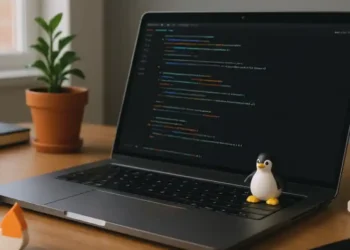
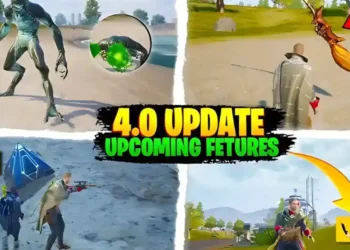
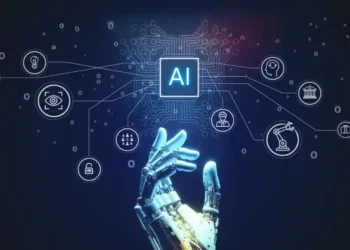
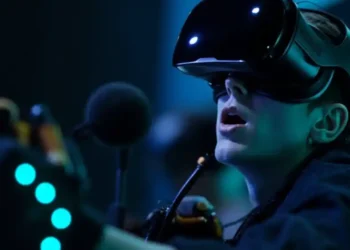
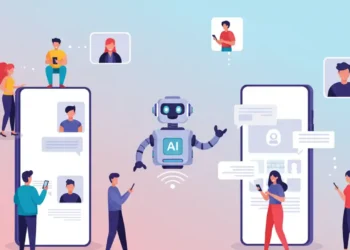








Discussion about this post